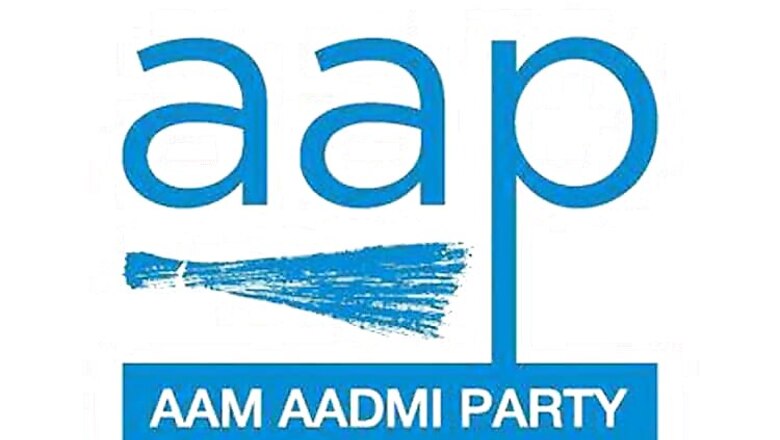
views
Massive corruption under UPA government triggered public anger and India Against Corruption team channeled this anger through the historic Jan Lokpal Bill movement. They exposed the cross party nexus in corruption and highlighted the existing alternative politics vacuum. Part of the movement had then decided to go political and fill the vacuum with clean/honest politics as USP. That "clean politics" agenda was the sole of Aam Aadmi Party, power was not the means but a by-product in that political reform. There were several good governance models floating around that time, but Arvind insisted that it was the political reform that could transform India. His promise was beyond governance and an overhaul of the political culture. He promised the moon with Lokpal, Swaraj, RTI, Right to Reject and Right to Recall within the party and government.
The party celebrated its 3rd anniversary on November 26th and almost finished 1 year of Delhi governance. Where do they stand on these political reforms?
Lokpal: Whole crux of the Jan Lokpal movement was an independent ombudsman free from political interference. The existing anti-corruption institutes depend on government/political system and the very purpose of IAC movement was to have an independent Lokpal. The party born out of that movement, resigned from govt for that bill proposed a lame Lokpal bill for Delhi. It is politically dependent (3/4th politicians for appointments and 2/3rd assembly majority for removal) and needed Anna/Prashant Bhushan to remind them about political influence in their proposed Lokpal. It was not an oversight but a deliberate attempt of AAP to have Lokpal under political control. They might have inspired from their own experience in removing the respected Admiral Ramdas as a Lokpal of the party.
Swaraj: AAP's strength in their primitive years was its esteemed team comprising uncompromised activists. But, now AAP's strength and weakness is Arvind Kejriwal. He wins them an election but assumes unyielding authority. Most of the constructive critics of Arvind Kejriwal were already shown doors in the party. Remaining AAP leaders draw power from Arvind and none of his coterie has shown their individuality yet. It's a one man party and decentralisation of power is a mirage.
RTI: Arvind Kejriwal tweeted that AAP was under the ambit of RTI. But, AAP neither appointed a PIO nor honored RTIs. An irony is - party headed by a RTI activist does not respond to RTIs.
Right to Reject and Right to Recall: Well, the party has a Right to Recall system. They used it against anti-corruption crusader Prashant Bhushan for questioning AAP's compromises in their run up to Delhi elections.
Unholy alliance: Most of the existing political parties have formed either visible or invisible alliances. Compromises on political corruption cases are largely due to these alliances. AAP tried (behind the doors) for an alliance with congress in desperation to form Delhi government after Lok Sabha elections. Arvind's interest/support in Bihar elections where his impact is null to minimal is a final nail in the coffin.
Modest Living of Legislators: AAP promised to slash MLA salaries by 50% along with several other promises (before 2013 assembly elections). But, Arvind and his ministers occupied Delhi Lutyens' bungalows citing administrative requirements. They even raised MLAs salaries by 400% this week.
Equality and Dynasty: AAP is expected to perform better in this aspect, but even failed to accommodate a woman in the cabinet. It alsogave a ticket to brave-heart Santosh Koli's brother to cash in the sympathy (dynasty).
Some of the AAP's promises on political front were too idealistic and definitely needed a re-look. But events unfolded in last one year clouds suspicion over their claim of idealism to pragmatism and support a change in heart from unselfishness to opportunism.
Aam Aadmi Party is built on the credibility of civil society and public movements. People from all walks of life have joined to ensure the idea of AAP's success. But, its failure in walk the talk is a huge setback for civil society movements and the people who toiled for its success. Now, public movements will be cynically compared to AamAadmi Party formation and performance. AAP's desperation to form the government in Delhi at any cost had seeded their downfall and everything after that was a snowball effect. It's USP (clean politics) got replaced by "anti-BJP" agenda. India Against Corruption movement's alternative politics ambition now transformed to AAP's political alternative greed in 3 years. Good Governance is the current administrative strategy and AAP joined the bandwagon with several other states.
That said, are Delhites getting due benefits of democracy and will India reap the same benefits from this political revolution is all matters at the end. Idea of AAP is too costly to fail as it will have lingering effects on any future political reforms in the country.
Gentle Reminder: Whoever opposes Modi is not anti-national and whoever opposes Arvind is not a BJP agent. Just like 1.2 million Delhi voters who did not vote for BJP and AAP for whatever reasons, there are millions more across the country. AAP should learn to respect alternate view point without becoming intolerant.




















Comments
0 comment